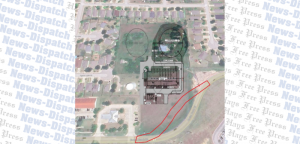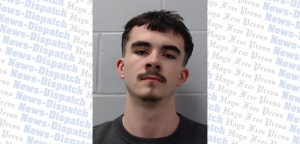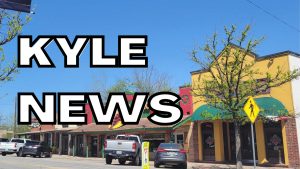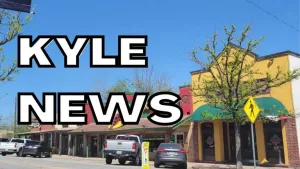By Bailey Buckingham
Kyle city leaders are holding reservations regarding the abundance of citizen requests for stop signs in neighborhoods at Kyle City Council meetings, fearing unwarranted signs could lead to “unintended consequences.”
On July 5, District 5 council member Shane Arabie requested four-way stop signs at the intersections of Kirby and Sanders, and Harrison and Mather in Plum Creek. The agenda item ultimately was passed by council.
“I was requested by the safety committee at Plum Creek to bring this item forward and that’s what I’ve done at this point,” Arabie said.
Mayor Todd Webster said the issue of stop signs in general is concerning because of the frequency it has been appearing on the council’s agenda.
“I think we need to have a policy related to this and be a little more thoughtful when it comes to this,” Webster said.
Kyle City Manager Scott Sellers said when a road is designed, a lot of research goes into the design, especially speed limits and signage. When signage decisions are directed to city staff, Sellers said they always refer to the Texas Manual on Uniform Traffic Control Devices (TMUTCD).
“That manual provides, where signs are concerned, that each sign location follows warranted procedures,” Sellers said. “And for a sign warrant there are certain criteria that should be met in order to install a sign.”
Sellers said criteria include, speed limit, type of road, accident data and average daily traffic. He said there is a lot to consider when installing signage.
But both locations on the agenda are not warranted areas. Sellers said there are unanticipated consequences for erecting unwarranted signs.
“History and research shows that drivers actually speed up faster in between signs when there are more signs on a road,” Sellers said. “So, you have faster starts and stops in between.”
Kyle Police Chief Jeff Barnett said the department compiled accident reports for both locations and there was one recorded police investigated report at Kirby and Sanders. There were no accidents recorded at Hartson and Mather.
The study is conducted during a 72-hour period, Monday through Friday and the department looked through accident reports from 2011 to present and neither warranted additional signage.
“After this, the city probably should not be paying for unwarranted stop signs,” Webster said. “Whatever the council decides, but we’re going to need a policy for who is going to pay for unwarranted signs and we’re going to need a policy, we need to setup some very clear rules for how this is going to work.”
Sellers said city staff has discussed setting up an unwarranted sign fee.
“Basically, any HOA neighborhood desiring any type of sign, if that stop sign meets warrant, the city will absolutely pay for and erect that sign,” Sellers said. “If the sign does not meet warrant, that sign will be born by the subdivision and maintained, still a legally binding sign but the ownership and maintenance would be the HOA.”
A neighborhood representative said the HOA conducted a speed study and 71 percent of vehicles were traveling over the 25 miles-per-hour speed limit. She said three of the five HOA board members were present at the meeting in which this item was discussed and they approved the erection of the sign.
Sellers said the process from beginning to end, and the erection of the sign would cost the city anywhere from $400 to $500.
“I do have reservations about this but I am going to defer to the two council members that know that community the best and are closest to it,” Webster said. “I’m going to restate that I have concerns about this, three meetings in a row now we’re approving unwarranted stop signs.”










